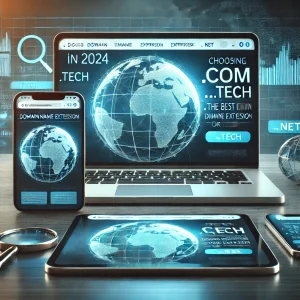Introduction to “The Future of CRM”
- Define “The Future of CRM” as the evolution of customer relationship management towards advanced technologies and strategies.
- Discuss the pivotal role of CRM in driving customer satisfaction, loyalty, and business growth in the digital era.
Evolution of CRM Systems
- Historical Perspective:
- Trace the evolution from early database systems to today’s cloud-based solutions.
- Highlight the shift from on-premise to cloud CRM and its benefits in scalability, accessibility, and cost-effectiveness.
- Advancements in AI and Machine Learning:
- Explain how AI and machine learning are reshaping “The Future of CRM”.
- Detail applications such as predictive analytics, sentiment analysis, and automated customer service responses.
- Showcase examples of AI-driven CRM systems that personalize customer interactions at scale.
Key Trends Shaping “The Future of CRM”
- AI-Powered CRM
- Predictive Analytics: Discuss how AI enables businesses to predict customer behavior and trends.
- Automation: Explore the automation of routine tasks, improving efficiency and allowing teams to focus on high-value activities.
- Omni-Channel Integration
- Seamless Customer Experiences: Illustrate the importance of delivering consistent experiences across all touchpoints.
- Unified Customer View: Explain how omni-channel CRM systems provide a unified view of customer interactions, enhancing personalization and customer service.
- Personalization at Scale
- Data-Driven Personalization: Detail how CRM systems analyze customer data to create personalized experiences.
- Dynamic Content Delivery: Showcase strategies for delivering relevant content and offers based on customer preferences and behavior.
- Blockchain for Data Security
- Enhanced Security: Explain blockchain’s role in securing customer data and transaction records.
- Transparency: Discuss how blockchain technology ensures transparency in CRM processes, building trust with customers and regulatory compliance.
- IoT Integration
- Real-Time Insights: Describe how IoT devices collect and transmit data for immediate analysis in CRM systems.
- Proactive Service: Highlight examples where IoT enables predictive maintenance and proactive customer service, enhancing customer satisfaction.
- Voice Technology
- Voice-Activated CRM: Explore the integration of voice assistants for customer interactions and data entry.
- Improved Accessibility: Discuss how voice technology simplifies CRM usage for employees and enhances accessibility for customers.
Future Challenges and Opportunities
- Data Privacy and Ethics:
- Address concerns around data privacy regulations (e.g., GDPR) and ethical use of AI in CRM.
- Discuss strategies for ensuring compliance and building customer trust through transparent data practices.
- Adapting to Technological Advances:
- Advise businesses on staying agile and adaptable to emerging technologies in “The Future of CRM”.
- Highlight the importance of continuous learning and upskilling for employees to leverage advanced CRM tools effectively.
Case Studies and Examples
- Successful Implementations:
- Feature case studies of companies leveraging advanced CRM technologies to achieve business objectives.
- Quantify improvements in customer retention, sales growth, and operational efficiency due to innovative CRM strategies.
Conclusion
- Summary of “The Future of CRM”:
- Recap key trends and innovations shaping the future landscape of CRM.
- Emphasize the importance of embracing technological advancements and customer-centric strategies to thrive in a competitive market.
- Call to Action:
- Encourage businesses to prioritize investments in “The Future of CRM” to foster stronger customer relationships and sustainable growth.
- Highlight the role of CRM as a strategic asset in driving digital transformation and achieving business success.





